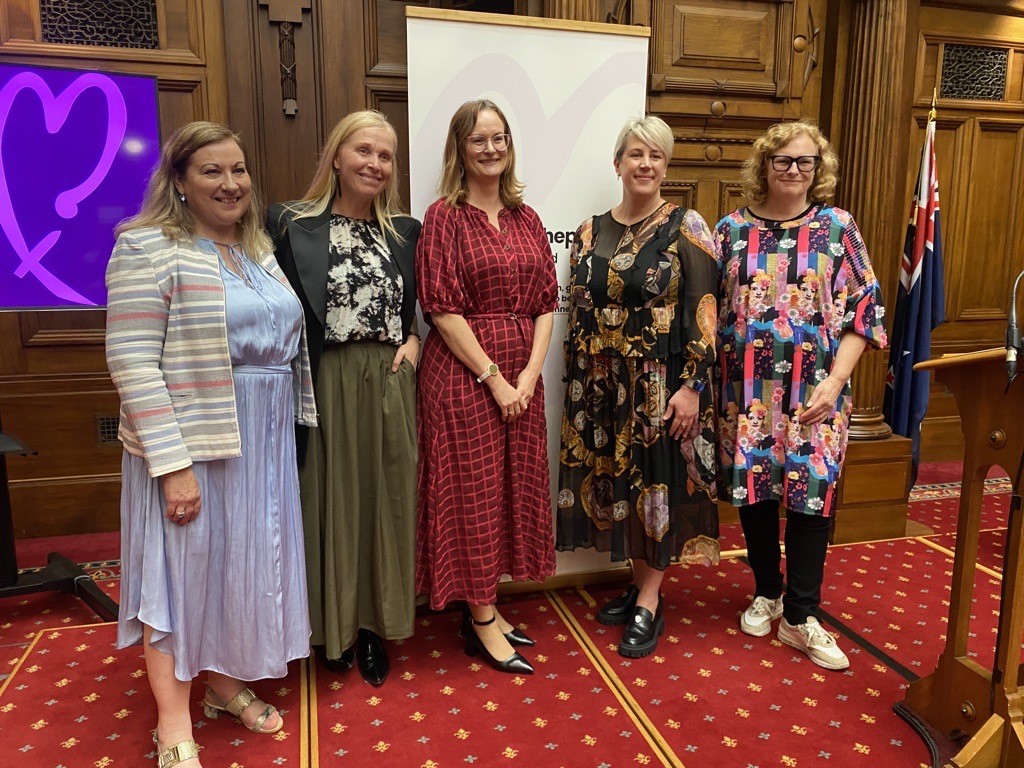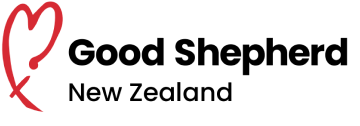Good Shepherd and Financial Services Federation partner to help non-bank lenders address economic abuse

Good Shepherd NZ is delighted to be partnering with the Financial Services Federation (FSF) to create a code of practice that can be used by member organisations who want to support survivors of family violence economic abuse.
“Economic abuse is a common form and feature of family violence. Examples include restricting someone’s access to money or financial accounts, taking someone’s money without consent, or accumulating debt under their name”, says Good Sheperd NZ CEO, Emma Saunders.
The codes of practice will create guidelines for organisations to provide effective support and fair treatment to customers experiencing economic harm due to family violence.
“Our clients tell us organisations’ frontline staff often don’t understand this form of abuse or know how to help and they often have to navigate many different policies and procedures”, says Emma.
The code is being developed in conjunction with a group of FSF member lender organisations, and FSF Executive Director, Lyn McMorran has had high interest from members wanting to be involved.
“We know organisations like those that belong to FSF are committed to supporting customers experiencing harm and vulnerabilities, so working together to develop a code of practice allows us to draw on our expertise to create a code of practice that we hope will ultimately help victims”, says Lyn.
Co-design of the code for FSF members has begun. Further codes of practice will also be developed for the energy, telecommunications, and financial advisor sectors. Work to develop the codes is expected to be complete in early 2025.
The announcement comes as Good Sheperd NZ marks International Economic Abuse Awareness Day (26 November 2024) with an event in Parliament to raise awareness of economic abuse and to announce the work on the code.
“Part of the issue with economic abuse is that it’s hard to recognise, and many people do not realise it’s a form of family violence. Even if finances are not used as a means of abuse, family violence creates economic harm. For example, money needed to move to safety or not being able to work due to fear or physical injury”, says Emma.
The theme for International Economic Abuse Awareness Day 2024 is ‘There’s no excuse for economic abuse’ and the day is part of the UN Women 16 Days of Activism Against Gender-based Violence.
Editor’s note
Help is available:
- Women’s Refuge — if you’re experiencing financial or economic abuse and/or other forms of family violence call 0800 733 843
- Good Shepherd’s Family Violence Economic Harm Service — if you’re recovering from family violence and want help with the money piece call 0800 466 370 option 4.
What is economic abuse?
Financial and economic abuse is recognised in the Family Violence Act 2018, as a form of psychological abuse. It takes many forms — eg restricting money, damaging property, preventing from work, manipulating how much child support is owed, forcing or fraudulently incurring debt.
Recent data shows that more than 60% of women seeking support from Women’s Refuge, who completed a risk assessment, noted they experienced financial or economic abuse. (Good Shepherd research, to be published in January 2024)
It can be hard to recognise economic abuse because, like other acts of psychological violence, it doesn’t leave visible marks.
While it often occurs alongside other types of violence, it can also be a standalone act.
Family violence economic harm can happen to anyone. We see people from all walks of life, socio-economic and demographic backgrounds, who suffer under controlling behaviours and economic abuse.
The impact can be devastating and can affect financial wellbeing long after the relationship is over. Research shows us that women’s access to employment is affected by economic harm, which limits their financial independence during and after an abusive relationship.
About Good Shepherd
Good Shepherd NZ is a charitable non-government organisation that helps women, girls and their families who are experiencing harm and hardship.
Good Shepherd provides a specialist support service to help people address and recover from family violence economic harm. Our specialists have experience in financial capability, advocacy and working with those who have experienced family violence and economic harm.
Our work in New Zealand began in 1886. We work in more than 70 countries, drawing on collective expertise, especially in the areas of economic participation and wellbeing, safety and resilience.
The Congregation of Our Lady of Charity of the Good Shepherd has Special Consultative Status with the Economic and Social Council of the United Nations for its work with women and girls, and is supported by the Good Shepherd International Foundation.
About the FSF
The FSF is the non-profit industry association for specialist lenders operating in Aotearoa New Zealand, with a collective customer base of over 1.7million consumers and businesses. FSF members provide crucial competition to traditional banks through innovation, agility, and the ability to be closer to their customers.
Members include finance, leasing and credit-related insurance providers, and include the likes of UDC Finance, MTF, Turners, several credit unions and building societies, fintech firms, and the finance arms of global motor vehicle brands including Toyota, Nissan, Honda, BMW, and Mercedes-Benz.
With 60 years of history, FSF has stringent membership criteria and enforces a Code of Conduct to maintain high standards in responsible lending. FSF members prioritise compliance, support consumer protection enforcement, and advocate for balanced regulations that ensure New Zealanders can access responsibly provided credit.
